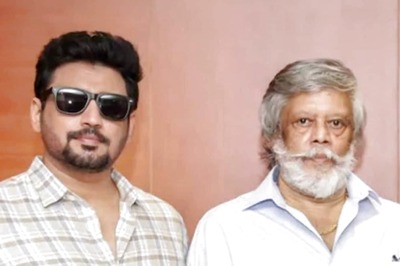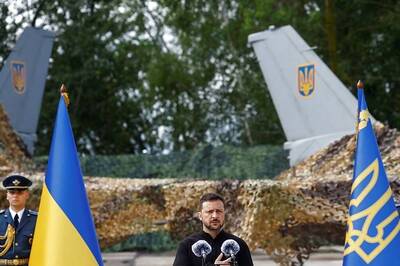
views
London: It is unlikely Osama bin Laden lived for years in the Pakistani town of Abbottabad where he was found and killed by US forces, a former head of Pakistan's Inter-Services Intelligence (ISI) agency said on Wednesday.
General Ehsan ul-Haq, who ran the ISI from 2001-2004, also rejected frequently-made suggestions that individual ISI agents might have helped the al Qaeda leader, arguing that it was a disciplined organisation whose officers followed the policies of the country.
Haq said he was surprised and embarrassed bin Laden had been found by US forces in a May 2 raid and that Pakistan's own intelligence services had not tracked him down first.
But he said he did not think he had been there for as long as five years as some reports had suggested, given that other militant leaders moved all the time to avoid capture.
"It would have been entirely uncharacteristic of al Qaeda to keep its leadership in one position for so long," Haq told Reuters on the sidelines of a Reuters security seminar. "My own sense is that he has not been there for so long."
The reports that bin Laden lived in Abbottabad for five years was based on comments by his wives, relayed by officials.
Haq said he believed bin Laden had chosen Abbottabad - home to the Pakistan Military Academy - since it had access to the mountains on the border with Afghanistan, and was a relatively quiet town less scrutinised by Pakistani security services.
"There were fewer, or hardly any acts of terrorism in that part of the country and consequently there was less focus by the intelligence and security services," he said.
Intense criticism
The Pakistan Army and the ISI have faced intense criticism in Pakistan after a month of intelligence and security failures.
The military's failure to find bin Laden, and apparent inability to detect and react to the US raid in Abbottabad, was followed by a militant assault on a naval base in Karachi which highlighted the vulnerability of military installations.
The ISI has also been accused of involvement in the death of Pakistani journalist Syed Saleem Shahzad - an allegation it denies - reviving questions about how far it was operating beyond the law.
Haq, who became Chairman of the Joint Chiefs of Staff before retiring from the military in 2007, said that it was wrong to believe the army and ISI operated outside the system.
"It is not true. They are subordinate to the civil authorities in Pakistan," he said.
Asked whether the civilian government would be allowed to conduct an independent inquiry into Shahzad's death, he said, "the prime minister is absolutely empowered to order an inquiry if he feels it is necessary to do so.".
Shahzad, who had said he had been threatened by the ISI over his coverage of Islamist militants, was beaten to death in May.
The ISI denied threatening Shahzad and pledged in a statement to find his killers and bring them to justice.
No rogue agents
Haq also rejected suggestions that individual ISI officers might support militant in defiance of orders - an argument frequently put forward by security analysts to explain what they see as contradictory policies on fighting militancy.
"Yes there are al Qaeda sympathisers (in Pakistan) but I don't think there are sympathisers in the armed forces or security services," the former spy chief said.
He made the same point when asked if individual ISI agents could have helped organise the November 2008 attack on Mumbai which killed 166 people and which India and the United States blamed on the Pakistan-based Lashkar-e-Toiba militant group.
David Headley, an American arrested in Chicago who admitted to carrying out surveillance for the Mumbai attack, has said he worked with ISI officers.
The Mumbai attack, said Haq, did not serve the interests of Pakistan, and individuals would be too disciplined to go against the policy of the country.
"Knowing the armed forces of Pakistan, I know they are highly professional, disciplined, people who certainly would not do anything contrary to the policy of the state."




















Comments
0 comment